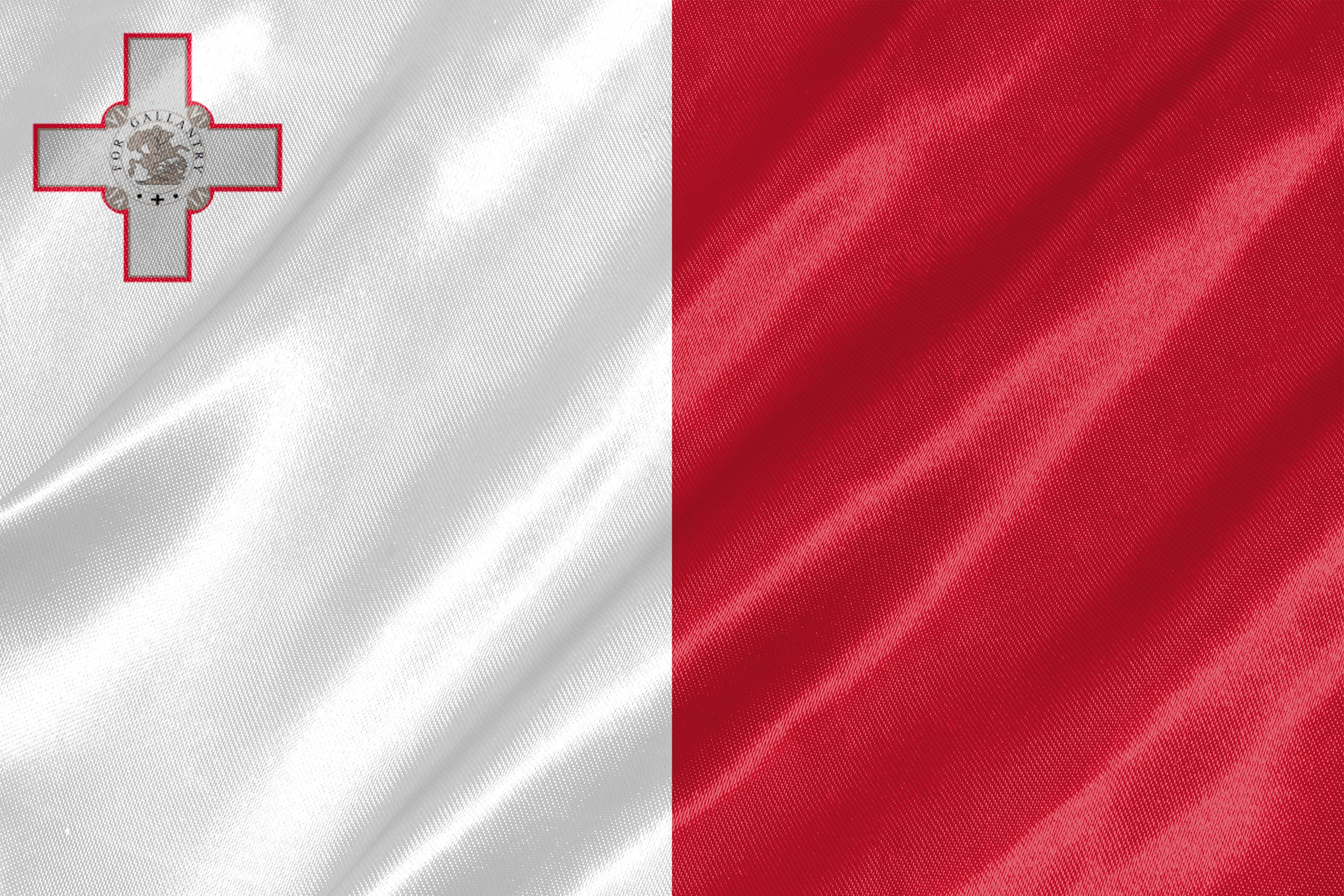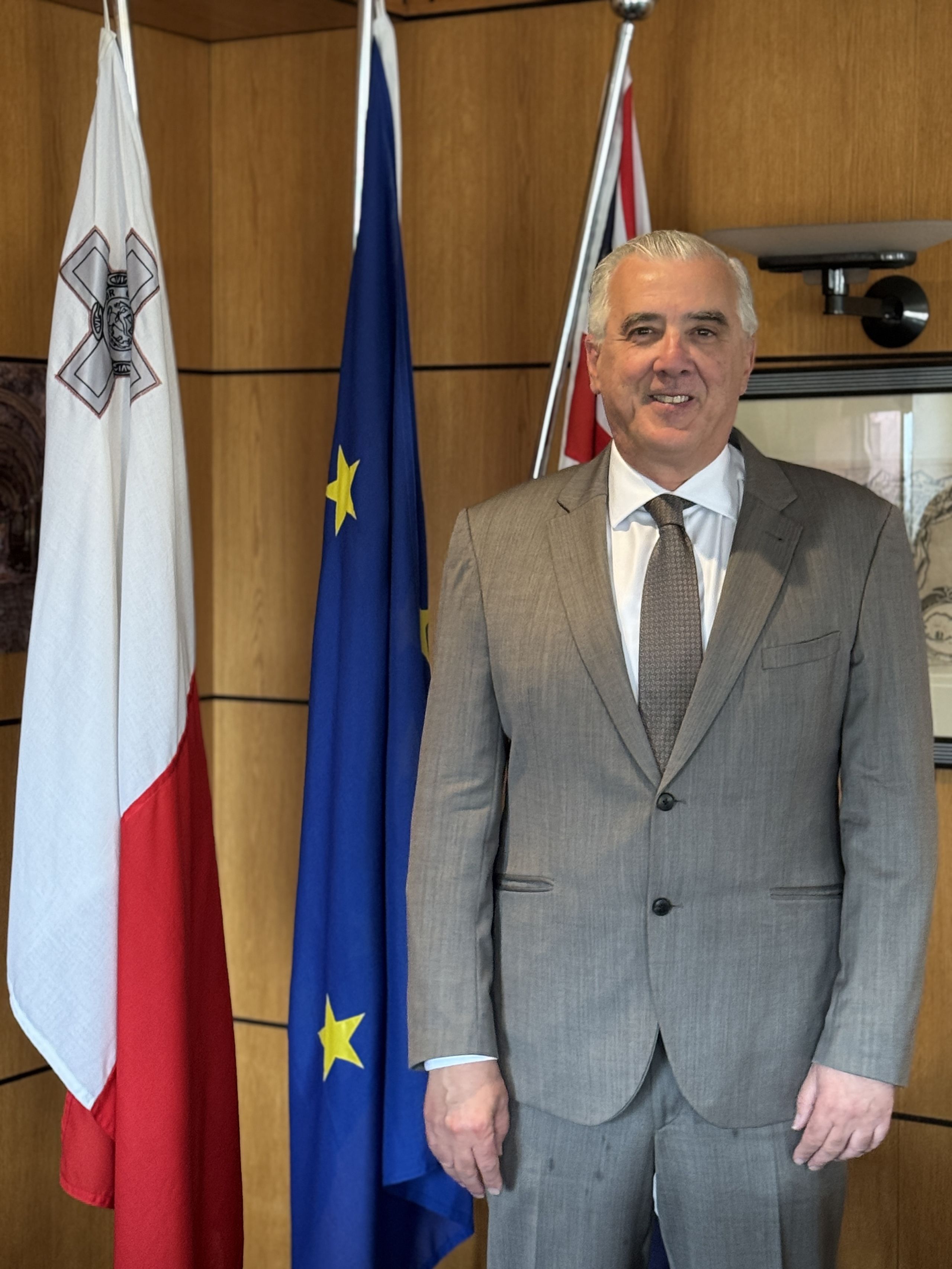His Excellency
Professor Stephen Montefort
High Commissioner of Malta

Bridging Medicine and Diplomacy
Since his appointment as High Commissioner of Malta to the United Kingdom in January, Professor Stephen Montefort has embraced his new role with the same energy and empathy that defined his four-decade-long medical career. A respected respiratory physician, academic, and former adviser to Malta’s top political leadership during the COVID-19 pandemic, Professor Montefort is now channelling his expertise into the world of diplomacy.
“I was pleased to accept this diplomatic post,” he says. “London is the centre of excellence in so many fields—medicine, diplomacy, and beyond. It’s a place where key decisions are made, particularly now as the UK and EU are working towards closer cooperation. Add to that its status as home to the Commonwealth and the International Maritime Organisation, and it’s clear: this is the place to be.”
Having previously studied at the Royal Postgraduate School of Medicine at Hammersmith Hospital, Professor Montefort reflects on how far he’s come. “It’s a joy to be able to enjoy London and what it has to offer.”
Raised in a modest household, Professor Montefort was the first in his family to enter a professional career. His father, a multilingual dry-dock worker who gradually rose through the ranks thanks to his strong work ethic, exposed him early on to diverse cultures and international perspectives. These formative experiences sowed the seeds for his later interest in geopolitics and global affairs.
Married to his wife Anna for over 40 years, the couple are proud parents of two daughters who both live and work in the UK, one being a chest physician herself. “Being able to see each other more often – as well as our two grandchildren – is something we truly value,” he says.
Though not a career diplomat, Montefort has previously served as physician to two of Malta’s Presidents. “When the opportunity to become High Commissioner arose, I jumped at it. It’s a political appointment, but I see it as a continuation of service to my country.”
Professor Montefort’s role during the COVID-19 pandemic remains one of the most profound chapters of his career. As a specialist in respiratory medicine, he was one of Malta’s first volunteer physicians, serving as a frontline worker and advising both the Prime Minister and Health Ministry on matters ranging from lockdown protocols to vaccination strategies.
“We saw very difficult times, but also moments of success. Malta ended up with one of the lowest COVID mortality rates in the world, thanks in part to the rapid uptake of vaccines and sound public health decisions. That experience had a deep psychological effect on me and was one of the reasons I decided to move away from clinical medicine after 40 years.”
Beyond clinical work, Professor Montefort has left a significant mark in medical academia. As a Full Professor, former Academic Head of the Department of Medicine at the University of Malta and Vice Dean of the Faculty of Medicine and Surgery he helped shape generations of medical professionals. A recipient of a Commonwealth Scholarship, he pursued his PhD in Southampton under the mentorship of Professor Sir Stephen Holgate, a turning point that steered him in the direction of academic research. His academic achievements led him to be awarded the Order of Merit by the Republic of Malta in 2020.

One of his most notable contributions was his involvement in the International Study of Asthma and Allergies in Childhood (ISAAC), the largest epidemiological study of its kind. As the regional coordinator for the Eastern Mediterranean, he played a vital role in shaping global asthma policy. While he no longer practices clinically, he continues to give online lectures and supervise PhD students. “That academic side of me hasn’t completely faded.”
Professor Montefort believes his medical background has uniquely equipped him for diplomacy. “Medicine teaches you empathy. When you’ve spent years treating patients, breaking bad news or comforting relatives, that human connection becomes second nature. This transfers well into diplomacy.”
He is also leveraging his background to strengthen healthcare ties between Malta and the UK. Malta sends about 180 complex medical cases to Britain annually, and in return, British expat settlers receive free care in Malta. Furthermore, he notes, “As a former medic, I often step in to help with patient issues and liaise with their families.” He has also launched initiatives to bring together the Maltese medical community in the UK, creating a WhatsApp group of over 300 professionals and planning events to highlight their contributions to the NHS.
A core focus of his role is strengthening Malta-UK relations, especially post-Brexit. “There are around 70,000 Maltese, by ancestry, living in the UK — a significant portion of our total population of 500,000. We want to keep our language, food, and culture alive among younger generations here, and highlight business opportunities among us.”
Malta is unusual in that it is only one of two countries that are both members of the EU and the Commonwealth. “We’d like to use that to potentially act as a bridge between the two,” he says.
On the trade front, Professor Montefort is focused on building stronger business connections. “We want more Maltese companies securing contracts in the UK and vice versa. Malta is strong in financial services, fintech, iGaming, and pharmaceuticals. But Brexit has disrupted some medication supply chains amongst others, and we need to find solutions.”
He regularly attends Malta Business Network meetings and is exploring ways to boost British tourism to Malta. “The UK remains our biggest tourist market. Malta is welcoming to British tourists, English-speaking, and deeply Anglophile.”
Malta is playing a growing role in international climate discussions. The country is sending its Prime Minister and Energy Minister to COP30 in Brazil, emphasising its commitment to environmental sustainability. “At home, we’ve been proactive—promoting offshore wind farms and solar energy, offering subsidies for purchasing electric cars, and providing free public transport.” Professor Montefort proudly notes Malta’s role as a lead EU negotiator on climate adaptation and its contributions to global indices on climate vulnerability.
In a volatile global landscape, Malta’s greatest diplomatic challenge may be its size. “We have limited human resources in diplomacy, but this gives us agility and flexibility. Our strategic location in the Mediterranean is both a blessing and a challenge—especially with issues like illegal migration.” Despite these hurdles, Malta has remained a trusted moderator on the global stage. “We were the only country accepted by all parties to chair the OSCE recently. That says something about our reputation.”
One of the most unforgettable moments of his career, Professor Montefort says, was presenting his credentials to King Charles III. “His Majesty was incredibly approachable. We spoke at length. My grandfather was in the navy, and I was raised in a home that deeply respected the monarchy. It was a proud moment.”
Outside work, he and his wife enjoy traveling and exploring the UK. “The British countryside in the sunshine is unbeatable. We also intend to attend as many live music concerts and sporting events as possible. This is a great country with great people — we feel very much at home.”
